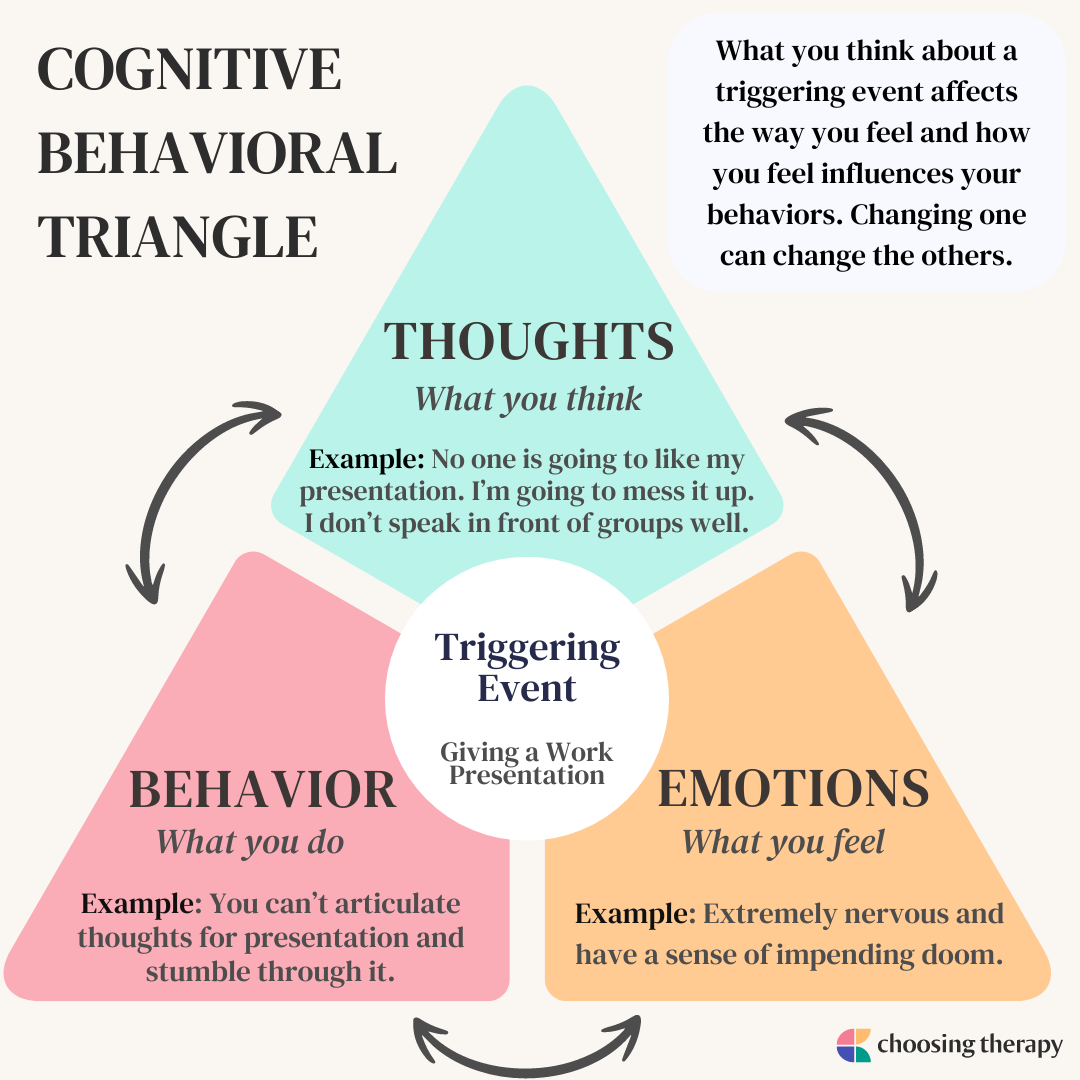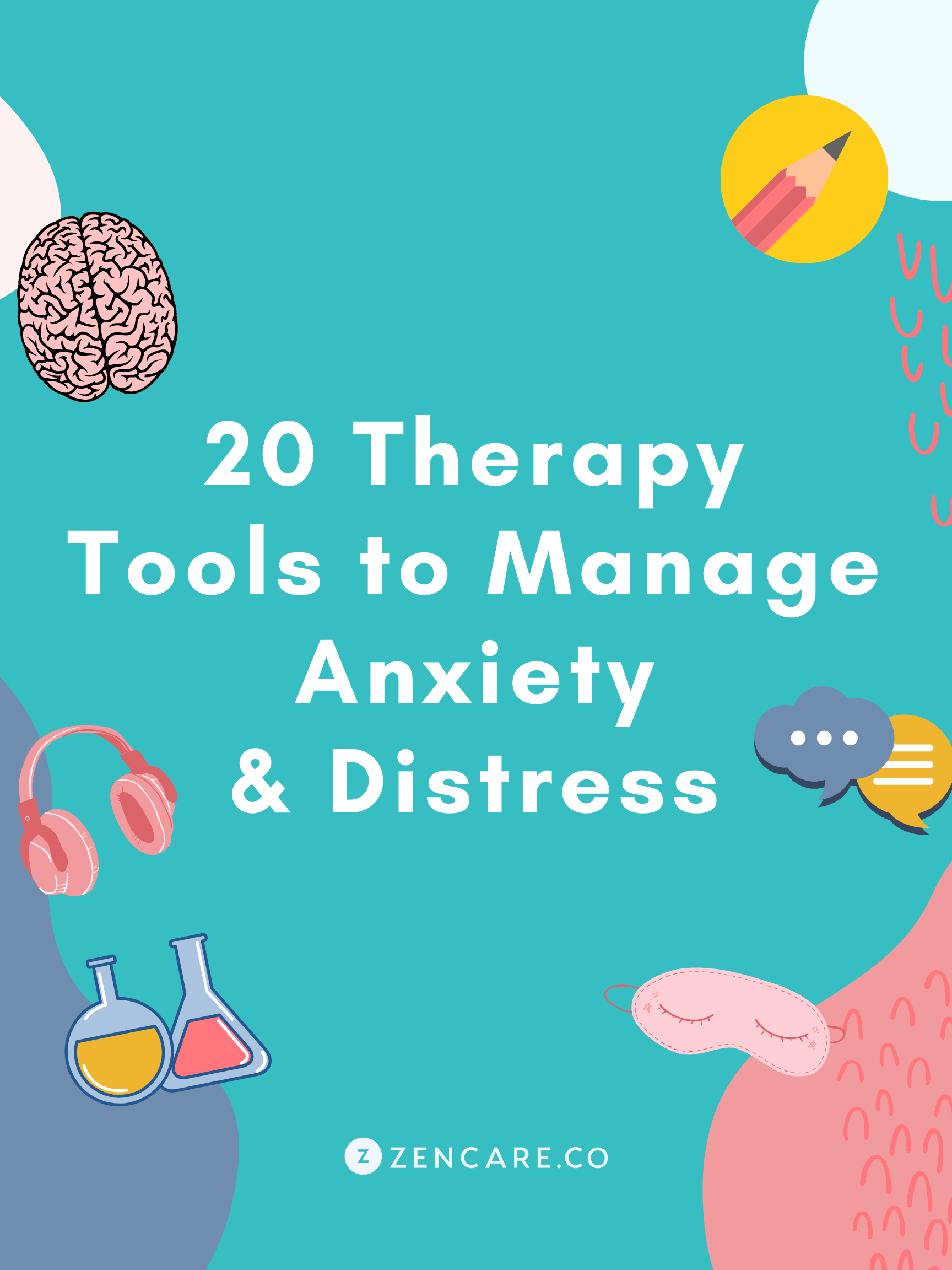Find relief and focus with trusted counseling services for anxiety
Find relief and focus with trusted counseling services for anxiety
Blog Article
Discovering Different Approaches in Therapy for Anxiety Condition for Long Lasting Adjustment
When tackling anxiousness conditions, it's vital to explore a selection of therapy approaches. Each method offers special understandings and tools to assist you handle your signs and symptoms effectively. You could locate that integrating techniques can produce the very best results. Nevertheless, recognizing the nuances of these approaches is essential to fostering lasting change. What happens if the appropriate mix could release a new degree of emotional wellness for you?
Understanding Stress And Anxiety Disorders: A Short Overview
Stress and anxiety conditions, which influence millions of individuals worldwide, can greatly affect day-to-day live. You might experience overwhelming feelings of concern or worry that seem irrepressible. These sensations can result in physical symptoms like an auto racing heart, sweating, or perhaps lightheadedness. Typical sorts of anxiousness disorders include generalized anxiousness problem, panic attack, and social anxiety problem. Each has unique signs, however they all share a propensity to interrupt your routine and relationships.Understanding the source of your anxiousness is important. It could stem from genes, brain chemistry, or life experiences. Identifying your triggers can help you manage your feedbacks much better. It's vital to bear in mind that you're not the only one in this struggle. Lots of people face similar obstacles, and seeking aid is a strong step toward sensation much better. By learning more about stress and anxiety disorders, you're already on the path to understanding and managing your problem better.
Cognitive-Behavioral Therapy: Challenging Adverse Idea Patterns
In Cognitive-Behavioral Treatment, you'll start by identifying the negative thought causes that contribute to your anxiousness. You'll work on replacing them with more positive alternatives once you acknowledge these thoughts. With each other, you'll construct effective coping techniques to assist handle your anxiousness in everyday scenarios.
Identifying Unfavorable Idea Triggers

Recognizing the certain triggers behind your negative ideas can be essential in handling stress and anxiety when you experience moments of distress. Begin by taking notice of situations that prompt feelings of fear or concern. Is it a crowded space, a forthcoming target date, or a conversation with particular people? Take down these circumstances in a journal. This will help you determine patterns in your thinking. Additionally, notice physical sensations that accompany your unfavorable thoughts, like a racing heart or rigidity in your chest. By identifying these triggers, you gain insight right into what's fueling your anxiousness. Understanding these connections is the initial step in challenging those thoughts and eventually regaining control over your psychological actions.
Changing Ideas With Positives
Challenging unfavorable thought patterns is a necessary step in transforming your way of thinking and reducing stress and anxiety. You may often find on your own caught in cycles of insecurity or devastating thinking. As opposed to letting these ideas determine your feelings, practice replacing them with favorable affirmations or practical alternatives. When you believe, "I can't manage this," move it to, "I can take care of challenges one action at a time." This simple change can significantly impact your psychological state. Regularly recognizing and countering these adverse thoughts aids produce a healthier internal dialogue. Bear in mind, it takes some time and effort, yet continually exercising this method can lead to long-term modification, encouraging you to encounter anxiety with restored self-confidence and resilience.
Structure Coping Approaches With Each Other
Replacing unfavorable thoughts is just the beginning of managing stress and anxiety successfully. To develop enduring change, you need to build coping methods that encourage you. Cognitive-Behavioral Treatment (CBT) helps you recognize and test those purposeless idea patterns. Together, you and your therapist can explore how these thoughts influence your feelings and behaviors.Start by establishing useful strategies, like journaling or mindfulness exercises, that allow you to challenge anxiousness head-on. When you encounter your worries slowly, you'll learn to react in a different way.

Mindfulness and Acceptance-Based Approaches: Cultivating Present-Moment Understanding
As you browse the intricacies of anxiousness, integrating mindfulness and acceptance-based approaches can considerably enhance your ability to grow present-moment awareness. By concentrating on the here and currently, you'll locate that you can observe your thoughts and feelings without judgment (Counseling services for anxiety). This technique assists you acknowledge your anxiousness without really feeling bewildered by it.Engaging in mindfulness exercises, such as deep breathing, body scans, or assisted reflections, permits you to ground yourself in your present experience. Acceptance-based methods encourage you to welcome your feelings rather than deal with versus them. They lose their power over you.Incorporating these methods right into your everyday routine can change just how you respond to stress and anxiety when you accept your feelings. You'll create resilience and find out to browse demanding circumstances with better convenience. Eventually, growing present-moment recognition lays the foundation for enduring adjustment, equipping you to lead a much more satisfying life
Direct Exposure Therapy: Facing Worries Gradually
Exposure treatment helps you confront your fears in a steady way, making it less overwhelming. You'll learn strategies to face anxiety-provoking scenarios action by action, while also developing coping strategies to handle your responses. This method encourages you to take control and decrease anxiety with time.
Gradual Direct Exposure Techniques

When encountering stress and anxiety, gradually confronting your fears can be a powerful way to gain back control. This technique, known as gradual direct exposure, involves slowly subjecting on your own to the situations or objects that trigger your stress and anxiety. Beginning with less daunting scenarios and progressively function your method up to even more challenging ones. As an example, if you hesitate of public speaking, you may start by speaking before a mirror, after that advance to sharing ideas with a pal, and ultimately address a little group. Each action aids desensitize you to the fear, developing your confidence in time. Bear in mind, it's important to speed yourself and celebrate small victories as you move via this procedure, strengthening your capacity to take care of stress and anxiety effectively.
Structure Coping Strategies
Building effective coping strategies is vital for managing stress and anxiety, specifically as you challenge your fears gradually - Counseling services for anxiety. One effective approach is exposure treatment, where you begin by encountering your concerns in a regulated manner. Begin with less intimidating circumstances and slowly function your means as much as more difficult scenarios. This gradual direct exposure helps desensitize you to anxiousness triggers, making them much less overwhelming.Incorporate leisure strategies, such as deep breathing or mindfulness, to relax your mind during direct exposure. Track your development, celebrating tiny triumphes along the road to improve your confidence. Remember, it's okay to take your time; the objective isn't excellence yet constant enhancement. By constructing these strategies, you'll encourage yourself to browse he said anxiety and accept life a lot more completely
Psychodynamic Therapy: Uncovering Origin Reasons of Anxiousness
Psychodynamic treatment explores the unconscious mind, disclosing the origin triggers of your anxiety. By analyzing your ideas, feelings, and past experiences, this approach aids you discover underlying conflicts and unsolved issues that may add to your check out here existing anxiousness. You'll deal with a therapist to explore youth experiences, partnerships, and emotional patterns that form your feedbacks today.As you acquire understanding into these deeper layers of your psyche, you'll begin to identify exactly how past occasions influence your existing actions. This understanding can cause catharsis, permitting you to refine feelings you could have suppressed.Through the therapeutic connection, you can additionally identify defense systems that might have established over time, using a more clear course to alter. Ultimately, psychodynamic therapy equips you with the devices to resolve your anxiety at its core, advertising long lasting change in your emotional wellness.
Alternative and integrative Methods: Combining Strategies for Greater Efficiency
Integrating various restorative strategies can improve your journey toward managing stress and anxiety more properly. By incorporating components from cognitive-behavioral therapy, mindfulness practices, and alternative methods, you can produce a customized strategy that resolves your one-of-a-kind requirements. For example, you may utilize cognitive-behavioral methods to test negative thought patterns while including mindfulness exercises to ground on your own in the here and now moment.Additionally, checking out alternative methods such as yoga exercise or reflection can promote relaxation and reduce anxiousness signs and symptoms. This blend enables you to establish greater self-awareness and resilience.Experimenting with these diverse techniques can help you uncover what reverberates most with you. Remember, it's about locating a synergy that works, instead of sticking to a single approach. This integrative strategy not only uses prompt relief however also fosters lasting skills for handling anxiety, empowering you to reclaim control over your life.
The Duty of Assistance Systems: Structure Durability Through Link
While it could seem that taking care of anxiety is a solitary trip, having a strong support group can play a necessary role in your durability. Surrounding on your own with compassionate pals, household, or assistance teams produces a safe room where you can openly share your experiences and sensations. When you get in touch with others, you advise yourself that you're not alone in this struggle.These partnerships provide motivation and can supply useful coping strategies that have actually functioned for others. It's also a chance to get perspective; friends can aid you see circumstances differently, minimizing feelings of isolation.Moreover, psychological support cultivates a sense of belonging, which can considerably alleviate anxiousness signs. By leaning on your support system, you can build strength and tackle obstacles more efficiently. Bear in mind, connecting for help signifies stamina, and it can make all the difference in your trip toward managing anxiousness.
Regularly Asked Inquiries
What Are the Common Signs of Stress And Anxiety Problems?
You may experience restlessness, fatigue, difficulty concentrating, irritability, muscle stress, and sleep disruptions. Physical signs can consist of rapid heart beat, sweating, and shivering. Identifying these indications early can aid you seek appropriate assistance and therapy.
The Length Of Time Does Therapy Usually Last for Anxiousness Problems?
Treatment for stress and anxiety conditions usually lasts anywhere from a few weeks to numerous months. It truly depends on your private needs, progress, and the strategies your specialist uses to help you handle your stress and anxiety effectively.
Can Medication Be Made Use Of Together With Treatment for Anxiousness?
Yes, medicine can most definitely be utilized together with therapy for stress and anxiety. Combining both strategies typically enhances therapy effectiveness, aiding you manage signs and symptoms while checking out underlying issues via therapy (Counseling services for anxiety). Constantly consult your doctor for personalized advice
Exist Self-Help Approaches for Managing Stress And Anxiety?
Yes, there are a number of self-help strategies for taking care of anxiousness. You can practice mindfulness, take part in routine workout, keep a balanced diet plan, develop a routine, and utilize deep breathing methods to help in reducing anxiety symptoms properly.
Exactly how Do I Know if I Need Expert Aid for Stress And Anxiety?

Report this page